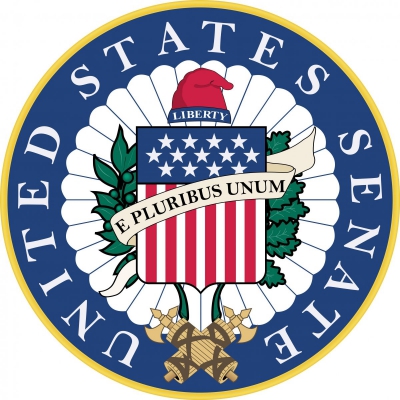The Treaty of Versailles (French: Trait de Versailles; German: Versailler Vertrag, pronounced [vza ftak] (listen)) was the most important of the peace treaties of World War I. It ended the state of war between Germany and the Allied Powers. It was signed on 28 June 1919 in the Palace of Versailles, exactly five years after the assassination of Archduke Franz Ferdinand, which led to the war. The other Central Powers on the German side signed separate treaties.
Although the armistice of 11 November 1918 ended the actual fighting, it took six months of Allied negotiations at the Paris Peace Conference to conclude the peace treaty. The treaty was registered by the Secretariat of the League of Nations on 21 October 1919.
Of the many provisions in the treaty, one of the most important and controversial was: "The Allied and Associated Governments affirm and Germany accepts the responsibility of Germany and her allies for causing all the loss and damage to which the Allied and Associated Governments and their nationals have been subjected as a consequence of the war imposed upon them by the aggression of Germany and her allies." The other members of the Central Powers signed treaties containing similar articles.
This article, Article 231, became known as the War Guilt clause. The treaty required Germany to disarm, make ample territorial concessions, and pay reparations to certain countries that had formed the Entente powers. In 1921 the total cost of these reparations was assessed at 132 billion gold marks (then $31.4 billion or £6.6 billion, roughly equivalent to US$442 billion or UK£284 billion in 2022).
Prominent economists such as John Maynard Keynes declared the treaty too harsha "Carthaginian peace"and said the reparations were excessive and counter-productive. On the other hand, prominent Allied figures such as French Marshal Ferdinand Foch, criticized the treaty for treating Germany too leniently. This is still the subject of ongoing debate by historians and economists.
The result of these competing and sometimes conflicting goals among the victors was a compromise that left no one satisfied. In particular, Germany was neither pacified nor conciliated, nor was it permanently weakened. The problems that arose from the treaty would lead to the Locarno Treaties, which improved relations between Germany and the other European powers, and the re-negotiation of the reparation system resulting in the Dawes Plan, the Young Plan, and the indefinite postponement of reparations at the Lausanne Conference of 1932. The treaty has sometimes been cited as a cause of World War II: although its actual impact was not as severe as feared, its terms led to great resentment in Germany which powered the rise of the Nazi Party.
Although it is often referred to as the "Versailles Conference", only the actual signing of the treaty took place at the historic palace. Most of the negotiations were in Paris, with the "Big Four" meetings taking place generally at the French Ministry of Foreign Affairs on the Quai d'Orsay.
The United States Senate is the upper chamber of the United States Congress, with the House of Representatives being the lower chamber. Together they compose the national bicameral legislature of the United States.
The composition and powers of the Senate are established by Article One of the United States Constitution. The Senate is composed of senators, each of whom represents a single state in its entirety. Each state is equally represented by two senators who serve staggered terms of six years. There are currently 100 senators representing the 50 states. The vice president of the United States serves as presiding officer and president of the Senate by virtue of that office, and has a vote only if the senators are equally divided. In the vice president's absence, the president pro tempore, who is traditionally the senior member of the party holding a majority of seats, presides over the Senate.
As the upper chamber of Congress, the Senate has several powers of advice and consent which are unique to it. These include the approval of treaties, and the confirmation of Cabinet secretaries, federal judges (including Federal Supreme Court justices), flag officers, regulatory officials, ambassadors, other federal executive officials and federal uniformed officers. If no candidate receives a majority of electors for vice president, the duty falls to the Senate to elect one of the top two recipients of electors for that office. The Senate conducts trials of those impeached by the House.
The Senate is widely considered both a more deliberative and more prestigious body than the House of Representatives due to its longer terms, smaller size, and statewide constituencies, which historically led to a more collegial and less partisan atmosphere.From 1789 to 1913, senators were appointed by legislatures of the states they represented. They are now elected by popular vote following the ratification of the Seventeenth Amendment in 1913. In the early 1920s, the practice of majority and minority parties electing their floor leaders began. The Senate's legislative and executive business is managed and scheduled by the Senate majority leader.
The Senate chamber is located in the north wing of the Capitol Building in Washington, D.C.

1920Mar, 19
The United States Senate rejects the Treaty of Versailles for the second time (the first time was on November 19, 1919).
Choose Another Date
Events on 1920
- 19Jan
League of Nations
The United States Senate votes against joining the League of Nations. - 8Mar
Arab
The Arab Kingdom of Syria, the first modern Arab state to come into existence, is established. - 19Mar
Treaty of Versailles
The United States Senate rejects the Treaty of Versailles for the second time (the first time was on November 19, 1919). - 28Apr
Soviet Union
Azerbaijan is added to the Soviet Union. - 25Oct
Sinn Féin
After 74 days on hunger strike in Brixton Prison, England, the Sinn Féin Lord Mayor of Cork, Terence MacSwiney dies.

 English
English  español
español  français
français  português
português  русский
русский  العربية
العربية  简体中文
简体中文 